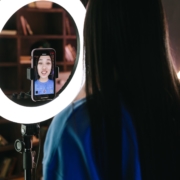Top Hiring Mistakes Companies Make & How to Avoid Them
With the competitiveness of today’s job market, finding the right employees for the job is a complex process that is sometimes overlooked. Many companies have made a habit of hiring the wrong candidates for their positions, leading to high staff turnover rates and poor performance.
A recruiter’s main goal is to help companies avoid these hiring mistakes by providing the strategy and experience required to achieve success in the hiring process.
This blog post outlines the top mistakes businesses make when hiring new employees and how recruiters can help improve the hiring process.
Not asking the right questions
This one may seem quite obvious, but one misunderstood question can throw off an entire interview, even with a qualified candidate. Complex questions don’t always produce the answers needed to evaluate a candidate’s knowledge or experience.
Also, hiring managers may sometimes ask questions that simply do not make sense, either because of a language barrier or because the question falls outside the context of the position at hand.
Outsourcing agencies are skilled at researching job roles and coming up with the most relevant questions to test and evaluate candidates before and during the interview process.
They know when to ask open-ended questions that allow for a candidate to fully express themselves and showcase their personality (e.g. Can you tell me more about yourself? ), versus when to ask closed-end questions that elicit a specific response (e.g. What is the standard procedure for handling Error 404 support requests?).
Not communicating requirements effectively
Hiring managers often miscommunicate or fail to specify the main skills and experience they want in their new hire. Recruiters are able to understand the unique requirements of hiring managers and develop accurate job postings for each position.
A good job post will filter candidates from the onset and attract the most relevant responses from qualified applicants. Asking well-researched screening questions for a position can increase the quality of each applicant by filtering out candidates that may not be a good fit for the role.
For example, an unqualified candidate is more likely to apply to a broadly described position over one with clear requirements and emphasis on must-have skills for the job. It is the ability to nail these small but important details that make recruitment services a valuable investment for your hiring needs.
Poor screening process
Screening candidates is a crucial part of the hiring process that hiring companies may not always get right. Recruiters are skilled at taking candidates through a rigorous, holistic screening process, focusing on key factors, such as:
- Must-have skills and qualifications for the position
- Good-to-have or desired qualifications
- Knowledge of the company and industry
- Company culture and personality fit
On average, conversion rates for the average hiring process are around 12% (application to interview), 17% (interview to offer), and 89% (offer to acceptance and placement). This means that most applicants will be filtered through based on their CV’s, leaving only the highest quality candidates for interviews, and ideally, ending with the best candidate for the position.
Recruiting is about more than just finding someone for an open position; it’s also about making sure that the company connects with an individual who brings value to the business, sticks around for a while and does their job well.
On another level, job postings handled by an outsourcing agency can help companies find top candidates who might not have applied for the job. Depending on the position, there can be a significant amount of competition between hiring companies to fill roles that are in high demand. Experienced recruiters know how to position a company in the right place, at the right time, with messaging that speaks to the needs and expectations of highly sought out talent.
Not being transparent enough about pay
Attracting top talent is one thing, but successfully negotiating and hiring them is another. One mistake that businesses make is not being transparent on what is often the biggest deal-breaker: how much they are willing to pay the candidate.
Traditionally, negotiating salary is left for the final stage of the hiring process once a candidate has already accepted the offer. However, top candidates usually have multiple offers to consider, and may catch hiring managers off-guard with higher salary expectations. Negotiating with top talent, and any candidate for that matter, is a necessary part of the hiring process. A recruiter can help smooth things out by conducting research into the relevant position and making hiring managers aware of the standard pay.
Recruiters can also share the salary expectations of the candidate to the hiring manager, and vice versa, and help negotiate a mutually beneficial agreement that everyone will be happy with. Being transparent with pay can increase acquisition rates in situations where the estimated salary range is higher than normal in that particular industry, making it a more desirable position.
Ultimately, companies need to be careful when hiring new employees because they are committing valuable time and resources for each potential acquisition. Recruiters have an edge in the recruiting process by providing insight into what qualities that businesses should look for in their potential hires, as well as help them find those candidates through recruitment strategies that work. Gaining the right outsourcing solutions is crucial to many businesses because it opens access to more qualified employees who might not otherwise apply for jobs with them.


